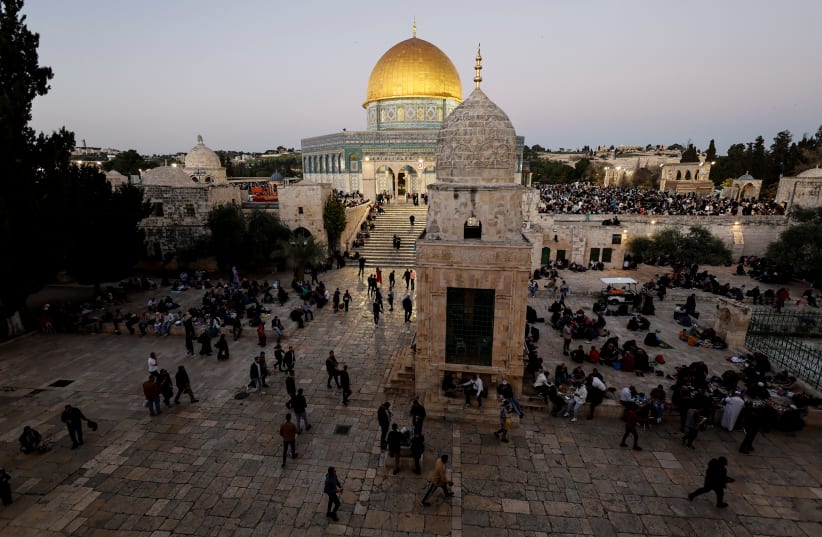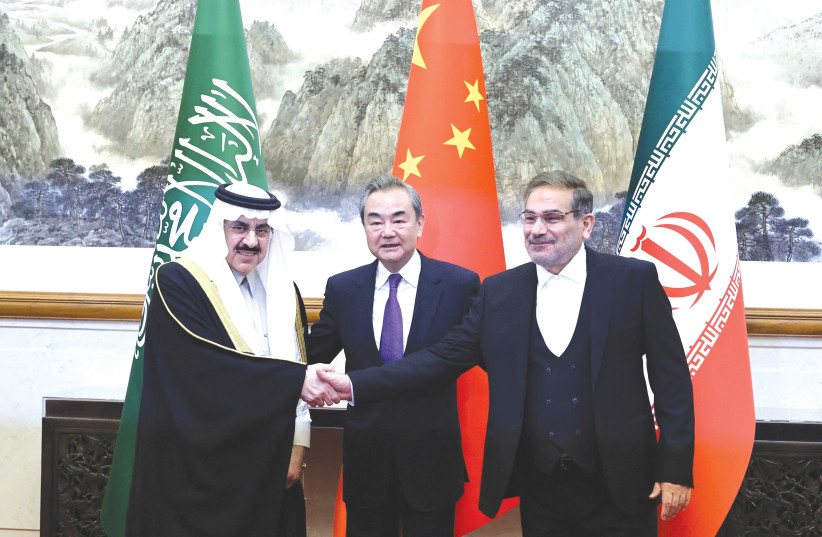Across the Middle East, countries are using Ramadan to host meetings and engage in diplomacy that aims to heal the rifts of the region. This is unique and important because many countries that have had tensions in the past are now trying to work together toward a new era of diplomacy. This engagement is important and many of the countries involved believe it will result in stability.
Saudi Arabian envoys in Iraq talk with Iran
For instance, the ambassadors of Saudi Arabia in Iraq held a meeting with Iran for iftar, the fast-breaking evening meal of Muslims during Ramadan. According to the Saudi Gazette, “Saudi Ambassador to Iraq Abdulaziz Al-Shammari attended an iftar banquet hosted by the Iranian Ambassador in Baghdad Muhammad Al-Sadiq… A number of ambassadors accredited to the Iraqi capital also attended the iftar.
In Norway, Saudi Ambassador Amal Yahya Al-Moallimi also hosted an iftar banquet and invited Iranian Ambassador Ali Reza Yousefi, “along with the heads of Arab and Islamic diplomatic missions accredited to Norway.”Iranian and Saudi social media accounts praised and highlighted these meetings. The diplomacy takes place as Iran and Saudi Arabia are working on reconciliation.
“The signing of the agreement and the phone calls brought in a friendly atmosphere among members of the diplomatic corps of the two countries all over the world,” the Saudi Gazette noted. “The month of Ramadan witnessed the meeting of the ambassadors of the two countries in Iraq and Norway for iftar banquets, which confirms the progress in activating the Beijing agreement and the return of relations to normal.”
Iran’s Mahr news also noted the importance of these events, saying the iftar banquet “was held with the aim of converging the countries of the West Asian region.”
Saudi Arabia also began iftar programs in Sri Lanka and Pakistan. While these are designed to encourage Islamic unity and outreach, they clearly also help the kingdom’s image and give a chance for people to meet one another.
TURKEY’S DIPLOMAT in Egypt also hosted an event, according to posts online. This showcases Ankara’s attempt to do outreach in Egypt. Turkey had a cold relationship
with Cairo for many years, but the last year has brought more attempts at reconciliation.Ramadan is used as a way for Ankara to reach out and engage with important figures in Egypt. According to a report by Dalia Ziada, director of the MEEM Center for Middle East and Eastern Mediterranean Studies, Turkish diplomat Salih Mutlu Sen said that “our deep-rooted historical relationship has never been broken. It is now taking a new turn with a focus on a better future for the two nations.”
Sen was appointed last year to Cairo, and Ankara said it would upgrade relations with Egypt to ambassador-level in mid-March, after years of not having an ambassador there. Sen was Turkey’s former representative to the Organization of Islamic Cooperation between 2015 and 2020. Turkey’s Foreign Minister Mevlut Cavusoglu is supposed to travel to Egypt soon.
Observers who watch for messaging over Ramadan also noted that Israel’s Foreign Ministry hosted an iftar event. The New Arab website noted that “ambassadors from Jordan, Bahrain and the UAE skipped a Ramadan event organized by the Israeli Ministry of Foreign Affairs [MFA] on Sunday in a sign of a growing rift between Arab states and Israel. The UAE and Bahrain instead sent lower-level diplomats to the foreign ministry iftar, although Egypt and Turkey’s ambassadors did attend, The Times of Israel reported. The head of Morocco’s liaison office in Israel, Abderrahim Beyyoudh, also was present at the iftar.”
The ministry had tweeted about the event on April 3, noting that “Muslim diplomats and senior officials attended an iftar meal at the Israel MFA hosted by Foreign Minister Eli Cohen… participants included ambassadors and diplomats from the embassies of Egypt, Turkey, Bahrain, the United Arab Emirates, Morocco, Albania, Kazakhstan, Kosovo [and] Tanzania, as well as Chad and Azerbaijan.”
The US Embassy in Israel also hosted an iftar event
“Ambassador [Tom] Nides welcomed a group of Arab mayors and engineers from the towns of Sakhnin, Arraba, Ilaboun, Kaukab Abu al-Hija and Kabul who returned from a three-week US government-sponsored International Visitors Leadership Program in the US,” the embassy website noted.
The holy month has been used for outreach across the Middle East. This is important and in contrast to some previous years where tensions between countries and groups have underpinned the instability and extremism that has threatened the region. The Saudi-Iran reconciliation and Turkey’s outreach are two cornerstones of how the region is changing and putting diplomacy first.

